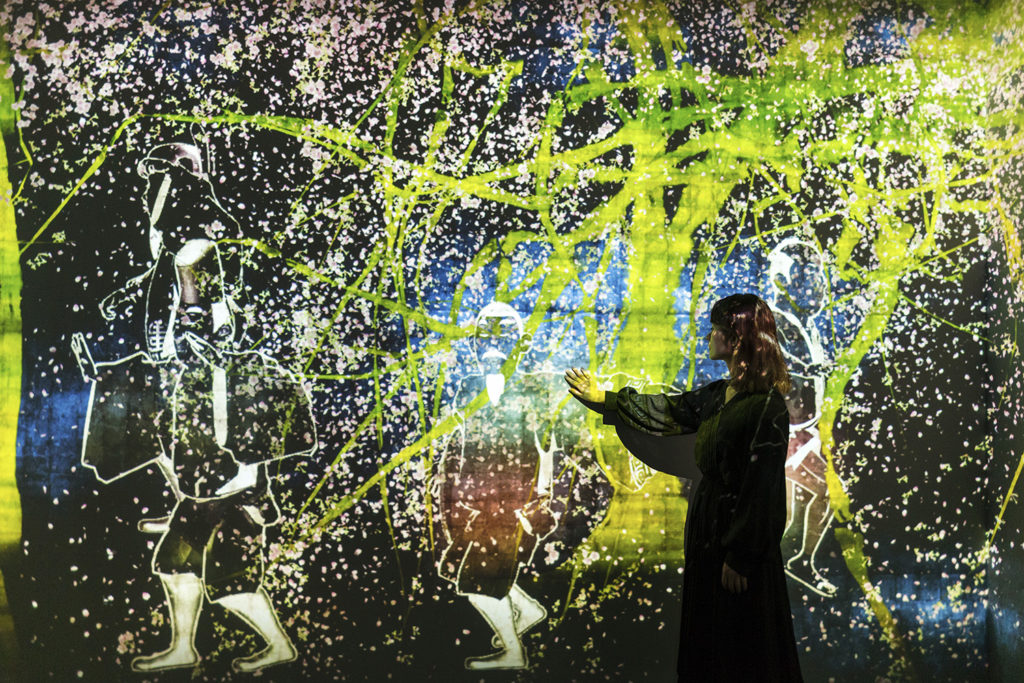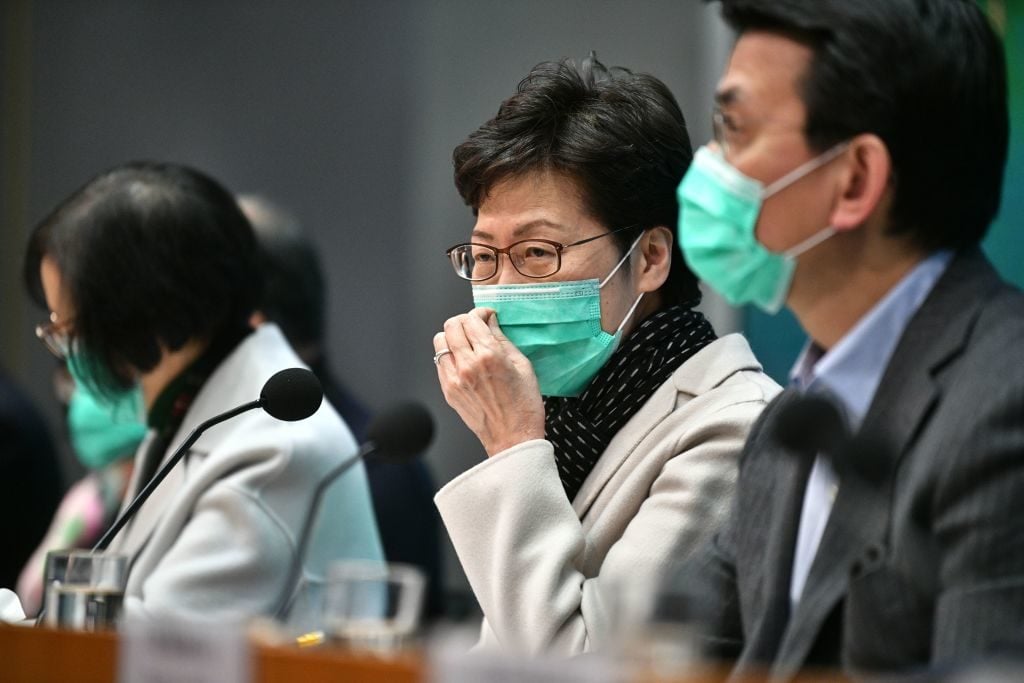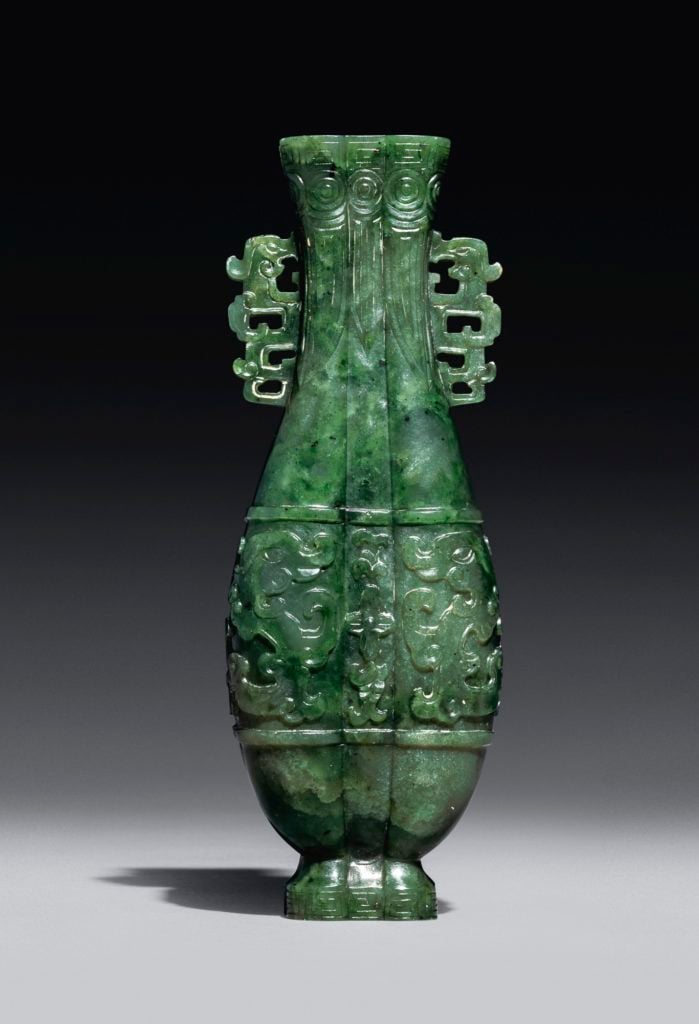Politics
Japan Joins a Wave of Countries Temporarily Shutting Down Museums in an Effort to Limit the Spread of the Coronavirus
The shutdown includes the popular teamLab Borderless in Tokyo.

The shutdown includes the popular teamLab Borderless in Tokyo.

Sarah Cascone

As the deadly strain of coronavirus, COVID-19, continues to spread across the world, Japan is taking emergency measures by closing its museums for at least two weeks at the instruction of the minister of education, culture, sports, science, and technology.
Affected institutions include the Tokyo National Museum, the Kyoto National Museum, and the Mori Art Museum and Ōta Memorial Museum of Art, both in Tokyo. TeamLab’s popular Tokyo museums, teamLab Borderless and teamLab Planets, are also closed, and will be refunding ticket purchasers. The Ghibli Museum dedicated to the films of Hayao Miyazaki, also in Tokyo, is offering refunds to guests with reservations for February and March.
Japan is following the example of South Korea and Italy, which both decided to shut down museums earlier this week. The National Museum of Korea, the National Museum of Modern and Contemporary Art, and the Leeum Samsung Museum of Art, all in Seoul, are currently closed until further notice. Venice’s Peggy Guggenheim Collection is set to reopen Monday, while Milan’s Pinacoteca di Brera is closed until Tuesday.
Prior to Japan’s government-instituted shutdown, some museums were already taking precautions of their own. The Hakone Open-Air Museum’s website instructed guests to use hand sanitizer provided at the entrance, to don masks if they were coughing or sneezing, and to “refrain from entering the facilities if you do not feel well or know that you have fever.”

Hong Kong’s Chief Executive, Carrie Lam, wearing a face mask while updating press on the state’s response to the coronavirus. Photo: Anthony Wallace/AFP via Getty Images.
The decision to shutter Japanese museums means that Tokyo’s National Museum of Western Art will delay the planned March 3 opening of “Masterpieces from the National Gallery,” reports the Art Newspaper. The exhibition, which is set to travel to Osaka’s National Museum of Art in July, comprises 60 works on loan from London’s National Gallery, including Vincent van Gogh’s Sunflowers.
The London museum hopes that the show will open on March 17, but “everything is dependent on government advice in this rapidly changing situation,” noted a press release, which added that gallery was “very disappointed about this delay, but we understand and fully agree with the reasons for it.”
As the number of COVID-19 cases in Japan spiked, organizers also announced the cancellation of the 34th annual Nakameguro Cherry Blossom Festival in Tokyo.
It appears increasingly likely that the disease will become a global pandemic, with the latest figures climbing over 83,000 cases in 53 countries, according to the New York Times. The spread of the disease has slowed in China, the original site of the outbreak, but cases are multiplying quickly in South Korea, Italy, Iran, and now Japan.
The US currently has 60 coronavirus cases, including a California woman whose illness cannot be traced to overseas travel and appears to be the country’s first “community spread” contraction of the virus, according to CBS.

The Auschwitz Memorial Museum. Photo by Szymon Kaczmarczyk, via Wikimedia Commons.
Fear of the disease has spread even to countries where there have been no documented coronavirus cases, such as Poland. Earlier this week, the Auschwitz Memorial Museum posted a notice asking visitors from infected places to stay home, noting that it had “recommended travel agencies and organizers of trips to the memorial to desist from the arrival of people from places found to be infected.”
Chinese institutions and cultural sites, including the Great Wall of China, also had to shut as the illness swept the country in January, with the government suggesting museums host online exhibitions instead. Museums in Hong Kong followed suit. Two new institutions, the He Art Museum in Foshan and the X Museum in Beijing, pushed back planned openings. The National Palace Museum in Taipei reopened on February 14, but remains closed on Mondays and will not be hosting guided tours through the end of March.

The Art Institute of Chicago sold this Qing dynasty jade vase at Sotheby’s New York for $7,500 during Asia Week 2019. Photo courtesy of Sotheby’s New York.
The virus has also seen the cancellation of March’s planned Art Basel Hong Kong and the postponement of CAFA Art Museum’s inaugural CAFAM Techne Triennial in Beijing, which was to have opened February 20. Beijing’s Jingart art fair has been cancelled as well, even though it was not set to open until May 24.
In New York, Christie’s and Sotheby’s have postponed Asia Week auctions from March to June. Sotheby’s has also moved its March Hong Kong auctions to New York in April.